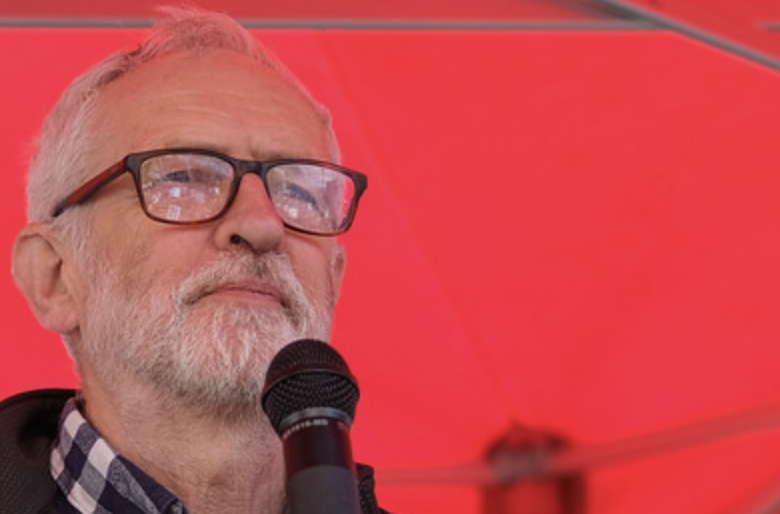Your Party’s Early Turmoil Tests its Future on The Left

Sylvie Topps, LLB LAW
In late July this year, British politics witnessed what could be the most significant shake-up of the left since New Labour. Your Party, as it is currently known, was formed by former Labour Party leader Jeremy Corbyn and Coventry South MP Zarah Sultana, alongside four other independent MPs. Corbyn was suspended from the Labour Party in 2020 following allegations of anti-Semitism, and Sultana was more recently debarred in 2024 after rebelling against the government whip in a vote to scrap the two-child benefit cap.
Motivated by the Labour Party’s ideological shift under Starmer's leadership, Your Party has committed itself to pro-Palestine policies and stands in opposition to the current parliamentary status quo of neoliberalism, austerity, and anti-immigration. With over 600,000 people signing up for Your Party updates in the first week, following its launch on July 24th, there have been growing anticipation that it could mark the birth of a new political force, and possibly the end of the dominance of the two-party system in Britain. Although there have been disagreements between key party members, sparking ardent debate over whether Your Party truly represents the left, community-driven movement it promised, it continues to gain traction.
On the September 18th, Sultana shared a link via her social media and the party’s mailing list, encouraging supporters to sign up for membership at an annual fee of £55 per person or £25 with a concession. By 1:03 p.m., Sultana claimed that 200,000 people had signed up for a membership, ultimately generating over £5 million.
However, at 2:07 p.m. on the same day, Corbyn and the four other MPs associated with Your Party issued an ‘urgent message’ urging supporters not to use the ‘unauthorised’ link shared by Sultana, announcing that ‘legal advice’ was being sought against her. Sultana claimed that she had been frozen out by a ‘sexist boys’ club’, which Corbyn responded to by saying she had not been ‘excluded from any discussions’ and remained part of a process ‘rooted in inclusivity and mutual respect.’
She continued to voice several concerns, including frustration over the fact that party funding was being managed by Karie Murphy, a long-time ally of Corbyn. Meanwhile, she emphasised that the money she had collected would go to Mou Operations Ltd, a company set up to manage party funding until its ‘democratic founding conference’ in November, where attendees will be decided by sortition based on gender, region, and background.
There have also been concerns about the party’s stance on transgender rights as Adnan Hussain, a founding member and the MP for Blackburn, publicly agreed with a social media user who stated that Your Party shouldn't ‘parrot the same neoliberal ideas of gender ideology.’ Hussain has also called for the creation of third spaces for trans people, which Sultana rejected, stating ‘trans rights are human rights’.
Despite the multitude of controversies surrounding Your Party, a July 2025 YouGov poll showed that 18% of the population were willing to vote for a new party led by Corbyn. Additionally, Ipsos reported that 20% of respondents were very likely to back Your Party. This suggests that leftist support for the Labour Party is falling, and that voters are willing to support a new movement.
Although the Green Party has seen a 20% surge in membership following Zack Polanski’s appointment as leader- surpassing the Liberal Democrats - there is a possibility that Your Party could be overshadowed as the Greens aim to win more than 30 MPs in the next general election. Nonetheless, with two successful regional assemblies led by party members in Birmingham and Liverpool in late September, Your Party has clearly cemented itself as a growing force in the political left.
Alongside the growing success of the Green Party and the establishment of Your Party has come an influx of support for closer cooperation between the two parties. According to Ipsos, 31% of respondents said they would be likely to vote for a coalition between the Green Party and Your Party, indicating a potential public appetite for a unified left-wing alternative capable of challenging the dominance of the Labour and Conservative parties at the next general election.
Could this be Your Party’s only means of survival, as questions remain over whether its members can transform early enthusiasm into sustained national support? While its online presence and regional assemblies have generated considerable grassroots momentum, long-term success will depend on converting digital engagement and regional activism into measurable electoral gains, a task that will test the party’s capacity to move beyond the constraints of internal adversity.



